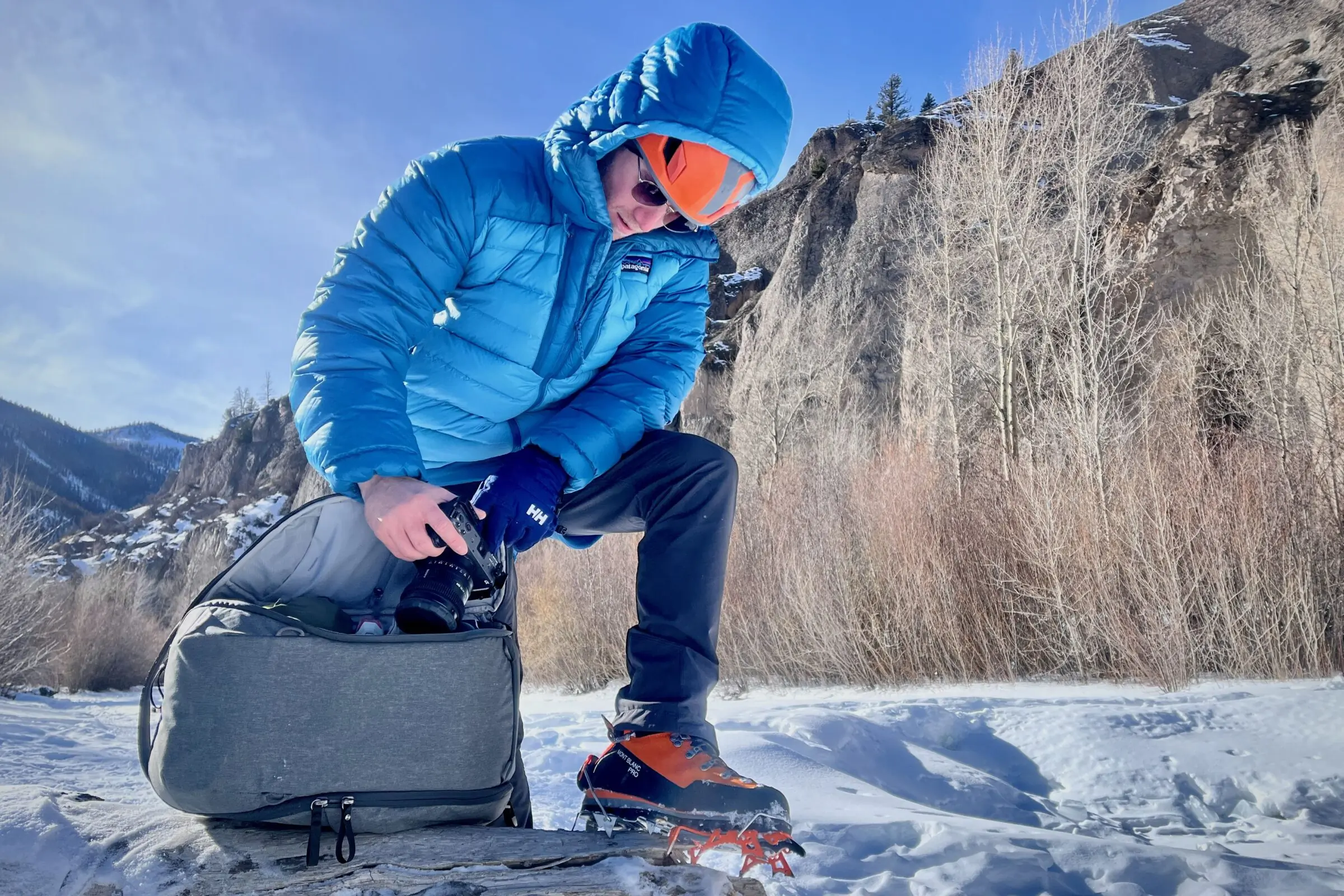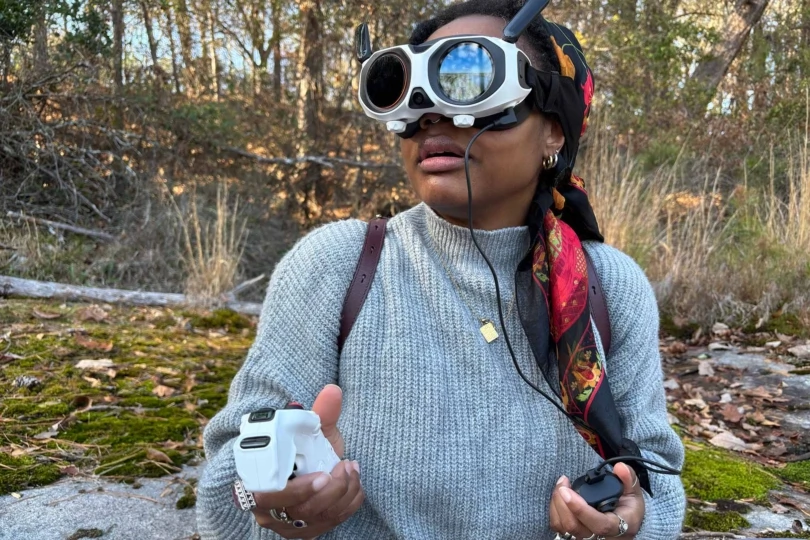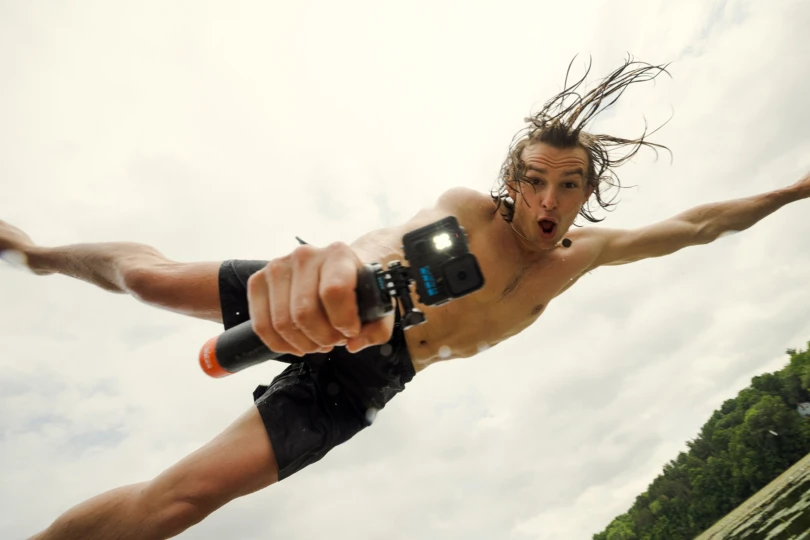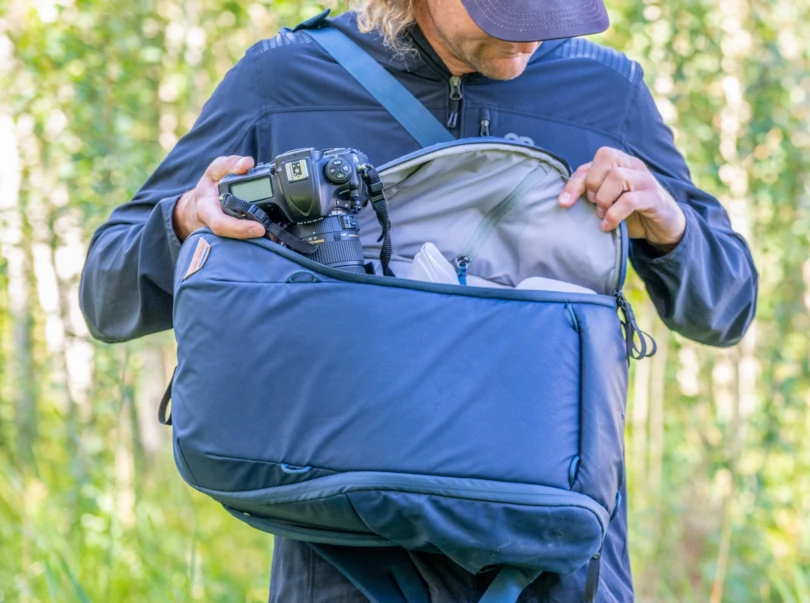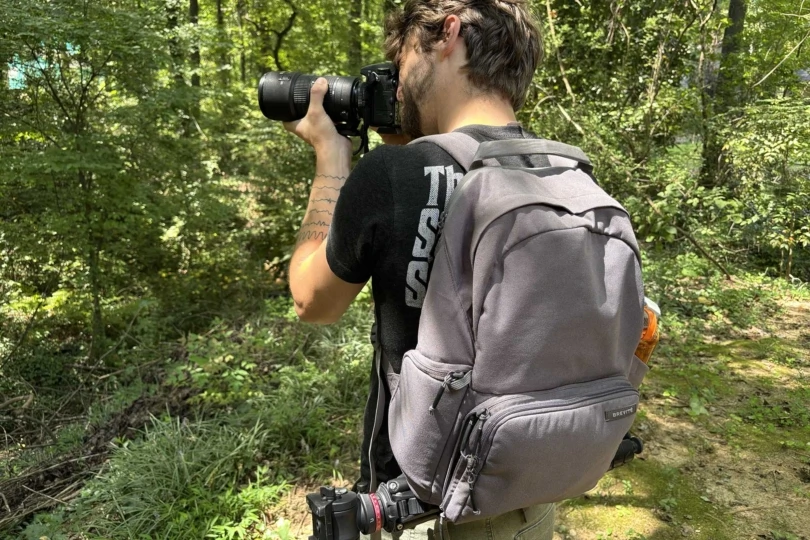It takes more than the right Instagram filter. But with dedication and a creative eye, the dream job of a pro outdoors photographer is perhaps more attainable today than ever before.

With equipment advances and a connected world, the barriers to entry in the market have never been lower for photographers. The internet, publications, social media, and brands have a near-insatiable need for imagery. The flip side is job security, as full-time staff photographer positions are becoming more rare in our current “gig economy.” The days of the salaried National Geographic job we all once dreamed of are, mostly, gone in this digital age.

For some context and clarity around the current media marketplace, we spoke with two men who are pulling it off and, as far as we can tell, living the dream. T.C. Worley has shot for dozens of publications, including frequent work with the New York Times.
Matt Trappe is one of trail-running’s leading names, shooting commercial work for clients including HOKA ONE ONE and Strava, as well as working close with multiple publications.
Here Trappe and Worley give background for budding photographers. From equipment info to lifestyle tips, take this advice to start on a path toward a dream job of your own.
Live Frugally
No surprise here. Trappe said it’s rare to make much money outright when you start, especially if you go from steady pay check somewhere to full-time as a freelancer. “Cut back on all expenses and luxuries,” he said. “I’m talking ramen night, often.”
As far as equipment, Trappe noted beginner photographers can save money by avoiding the thought that you need the most premium, most expensive camera equipment to succeed. “I once licensed an iPhone photo for $1,200,” he said. “I started with only a Nikon D7000 in my bag, and it was a Christmas gift.”
Expand Your Skill Set
Worley said the days of being able to pay your bills with just one craft, even if you do it very well, might be over for all but the most sought-after photographers.
“There’s an expectation that we’re all more than a one-trick pony these days,” he said, due in no small part to media’s rapidly-changing face. So he picked up videography, and video comprises a lot of his current gigs.

“You may need to know how to shoot in a cinematic way, and be able to work with a team of people,” he said. “A lot of guys coming out of photo and film school are very versatile and know how to video shoot, edit, and capture sound.”
He urged budding photographers to “learn some audio, learn to edit, learn to offer something besides just shooting.”
Find Your Niche
Trappe is inspired by trail running and figured he wanted to spend his time in and around that sport. (For Worley, it was cycling; more on that later.) Trappe tried to become known as the photographer who shot trail running better than anyone else.
“I loved trail running, and that made the photos that much better,” Trappe said. “Once you establish yourself there, you can always grow into other areas.”
Shoot Like Crazy, Network Like Crazy
Trappe said he simultaneously honed his skills and created a large body of work to show off by arranging his own shoots, shooting with friends (and strangers), practicing and experimenting. Then, he got those photos where the world could see them.
“The more people that see your work the better, so social media is your best friend,” he said. “Directly email new work to those clients you want to work for. Be persistent but not annoying.” He continued, “Each image is an ad for yourself so put it out there.”
Trappe said you should then immerse yourself in the community where you hope to specialize – go to trade shows and events, and introduce yourself to everyone. “You’ll get blown off a lot, but who cares, you can’t afford to be shy,” he said. “You will land projects through word-of-mouth that will trace back to people you met completely by chance.”
Finally, “Make friends with other photographers,” Trappe said. “Nobody likes that guy who’s all competitive and salty.”
Develop Passion Projects
No matter how many corporate gigs Worley gets in a year, he makes it a priority to do at least one personal project.
It started when he decided to create a large portfolio of images on his favorite sport – cycling – in its many forms, from singletrack to the velodrome. “I worked on it for months, maybe a year, and compiled a body of beautiful images in the cycling genre,” he said. “That proved I could handle that subject matter, in all sorts of conditions, and gave me a body of work I could show.”
His projects aren’t constrained by budget or the time allotted for a paid gig. He recently decked out a van, which he uses not only to travel but to shoot portraits in the back (see photo below).

“Every year I create work simply for my own enjoyment and creative outlet, and that’s most of what gets me my future jobs because, without fail, they turn out really well,” he said.
Don’t Work For Free
This is a particular point of contention in the digital age, when there is a huge demand for online photos but – often – not a budget to match.
Trappe said promises of “exposure” are meaningless if a publication that could pay you values your work enough to use it. He also warned that you can set a bad precedent with that publication – for yourself and others – by offering your work for free.
“You are setting your value so low that it will be tough to ever get paid by that client,” he said. “Free gear or ‘exposure’ doesn’t pay the bills, so the answer is always no. Value your work, because that client can probably pay you more than you think.”
Worley agreed. “If someone sees your work as valuable, they need to attach value to it,” he said. “It’s a slippery slope for people starting out – if a mag wants to use your work for free, suddenly you’re published, and maybe that’s okay once or twice. But it will hurt them and everyone in the long run by devaluing what they do and what you do.”
Less-Glamorous Background Work
CIA agents have to do a lot of paperwork. Marshawn Lynch has to talk to the press. And T.C. Worley has to do his own accounting.
“Keeping taxes in line, organizing all the forms, keeping up with mileage, and all that stuff on the back end is tough,” he said. “I’m not in love with the parts of this job that are like running a business.”



